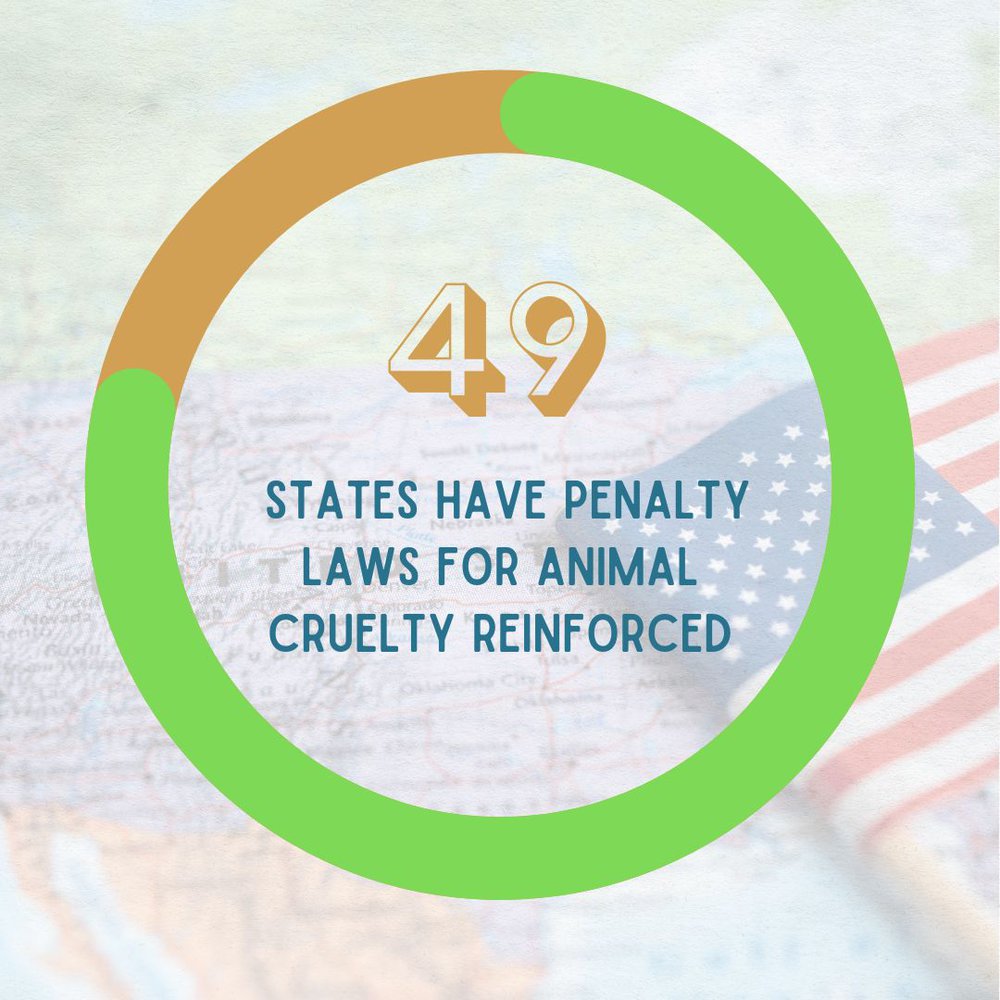Across the globe, the plight of animals subjected to cruelty and neglect commands urgent attention. As we tread further into the 21st century, the question arises: should animal cruelty laws be tougher? This inquiry transcends mere legal discourse; it examines our collective moral obligation to protect those who cannot advocate for themselves. With the advent of more sophisticated research revealing the holistic impacts of animal abuse, it is imperative to scrutinize the existing laws critically and identify the glaring gaps that persist.
To comprehend the necessity for enhanced legislation, we must first understand the diverse manifestations of animal cruelty. From blatant acts of violence—such as dog fighting and abuse—to more insidious forms like neglect and abandonment, each case reveals a complex interplay of societal values, education, and enforcement. Moreover, the legal ramifications often stand in stark contradiction to public outrage; the stark reality is that, in many jurisdictions, the penalties for heinous acts against animals remain woefully inadequate. Such discrepancies beg the question: are current laws merely a façade of protection?
Statistically, one cannot overlook the staggering figures associated with animal cruelty. The American Society for the Prevention of Cruelty to Animals (ASPCA) notes an alarming increase in reports of abuse year after year. In 2025, for instance, data indicated that nearly 49 states had implemented penalty laws for animal cruelty; however, these laws vary greatly in their scope and sufficiency. Some states impose minimal fines, while others offer leniency for repeat offenders. The troubling inconsistency in laws across state lines can result in a confusing patchwork that leaves many animals vulnerable. Would a national standard not serve as a more robust deterrent against such heinous behaviors?
While many states boast cruelty statutes, the enforcement of these laws often falters. Law enforcement personnel frequently receive scant training regarding animal law, which leads to underreporting and insufficient investigations. Consequently, victims of cruelty—whether they be companion animals or farmed species—often fall through the cracks of a system designed to protect them. This gap highlights a critical failure of societal responsibility; without appropriate training and resources, laws are rendered impotent. A legislative overhaul that includes comprehensive training for law enforcement—along with increased funding for animal control agencies—would significantly strengthen the enforcement of existing laws.
In considering reforms to animal cruelty laws, it is also vital to address the discrepancies in recognizing various forms of abuse. For instance, the distinction between “intentional” and “reckless” abuse can lead to vastly different punishments. In many cases, the lack of intent does not diminish the suffering endured by the animal. Thus, adopting a more expansive definition of animal cruelty that encompasses both intentional harm and negligent behavior can serve to protect a broader spectrum of vulnerable creatures. How can we reconcile our ethical imperatives with insufficient legal ramifications? A more inclusive understanding of animal welfare is essential.
Additionally, the role of societal attitudes towards animal cruelty cannot be overstated. As a society, we often conflate pet ownership with privilege, inadvertently dismissing the rights of those who exist outside of traditional human-animal relationships. Farmed animals, for instance, are routinely subjected to conditions that many would find appalling in the context of domestic pets. Thus, a re-evaluation of inherent biases that trivialize certain animals’ suffering could serve as a cornerstone for catalyzing change. Animal rights should not be an elitist concern; the urgency lies in extending our empathy to all sentient beings.
Moreover, the intersectionality of animal cruelty, social justice, and environmental issues presents another critical dimension of the conversation. Animal rights advocates have increasingly recognized the connections between the treatment of animals and broader systemic injustices that plague society. For instance, marginalized communities frequently experience higher instances of both human and animal abuse. Enhanced animal cruelty laws could serve as a counterweight to oppressive systems that perpetuate violence. By framing animal welfare as a crucial aspect of social reform, advocates could galvanize a collective movement that transcends individual advocacy efforts.
Undeniably, the need for tougher animal cruelty laws is compounded by a growing awareness of the psychological impacts of animal abuse. Research indicates that individuals who engage in violence against animals may also exhibit violent behaviors towards humans. By deterring animal abuse through stricter legislation, society could potentially mitigate broader violence. Recognizing these correlations illuminates the urgent need for legislative change, not merely as an act of compassion but as a practical societal necessity.
Should animal cruelty laws be tougher? The evidence is irrefutable. As the landscape of animal welfare continues to evolve, so too must our legislative frameworks. Strengthening these laws requires not only an acknowledgment of existing gaps but also the courage to confront uncomfortable truths. By fostering a culture that holds individuals accountable for their actions and advocates decisively for the rights of all animals, society can fulfill its promise of compassion.
In conclusion, the commitment to tougher animal cruelty laws is not merely a legal imperative but a profound moral obligation. The path forward lies in rethinking our approach, amplifying the conversation, and understanding that in protecting the most vulnerable among us, we elevate the values of our collective humanity. Making a concerted effort toward comprehensive legal reforms will ultimately serve to create a future where kindness and respect towards all creatures flourish, ensuring a legacy of compassion for generations to come.








